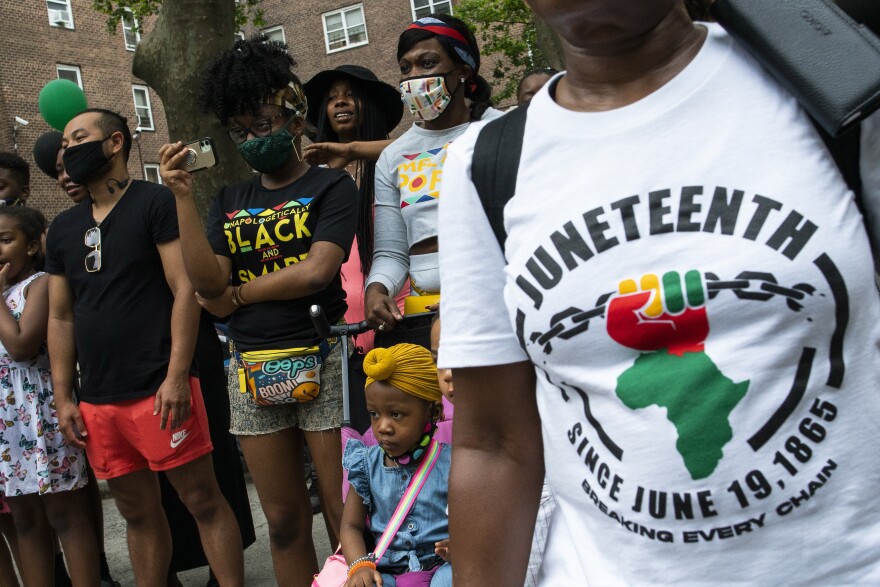Connecticut has some of the strictest gun laws in the country — but communities of color still experience disproportionate shootings.
As Juneteenth approaches, activists want to keep the impact of gun violence on the Black community at the center of attention.
According to CT Against Gun Violence, more than 50% of gun homicides in Connecticut are Black. Only 12% of the state’s population is Black.
Amnesty International senior organizer Arielle Newton said gun violence in Black communities has been brought on by a history of mistreatment.
“We can look at gun violence within Black communities, particularly, as a very long, direct sort of descendant of being deprived economically, for being maligned politically, for being forced to live under deplorable conditions,” Newton said. “And of course, the outpouring of that then manifests into inter-communal violence.”
Jacquida Mars is the assistant director of Alumni Engagement for Affinity and Identity Programs at Connecticut College and the community organizing coordinator of Amnesty International USA’s CT EGV Taskforce. Mars said the trend will continue if there isn’t change.
“A lot of these specific gun violence situations happen in lower-income areas,” Mars said. “And unfortunately, because of the culture that has been perpetuated over the course of, unfortunately, a long, long time, it has created this idea that violence is just supposed to be there.”
StreetSafe Bridgeport Program Director Ebony Epps said part of the problem is that kids in low-income areas need more recreation opportunities. Without anything to do, they find themselves getting into dangerous situations.
She wants the City of Bridgeport to provide more work opportunities for young adults.
“We need to figure out something where we could find jobs for all of them, so they won't be hanging out on corners,” Epps said. “Because we know when kids are busy, their minds are occupied, and they're doing something. They're not in the streets, they're less likely to pick up guns. There are still going to be issues and jobs do not solve all the issues. But that helps.”
Gun violence advocates will continue the conversation at a panel event hosted by Amnesty International this weekend.
Panelists include Epps, Newton, Mars, Connecticut Against Gun Violence Community Outreach Coordinator Sean Reeves and Hartford Black Lives Matter Chapter 860’s Ivellise Correa.
For more information on the panel, click here.





